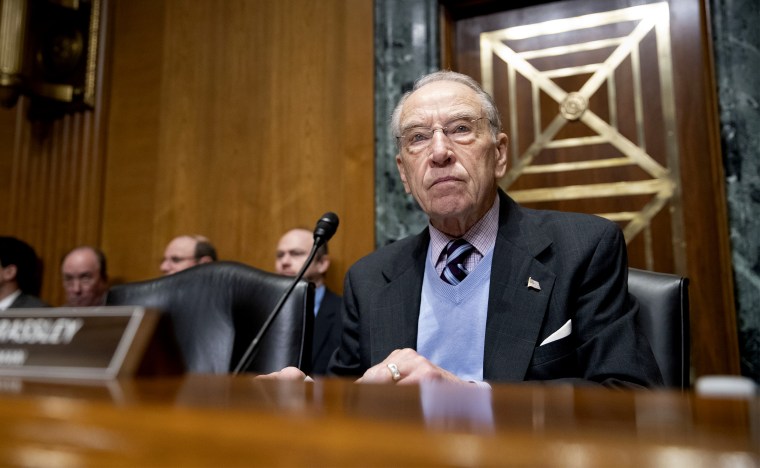Bill Clinton's impeachment may seem like ages ago, but the proceedings began in late 1998, which is recent enough that many members of Congress who considered the charges against the then-president are still on Capitol Hill.
Or put another way, in the wake of Donald Trump's latest impeachment trial, we can compare those who sat in judgment of both Clinton and Trump, and who came to different conclusions.
Broadly speaking, there are a handful categories of Republicans who considered the allegations in the late 1990s and in 2021:
Republican senators who voted to convict Clinton, but acquit Trump: Idaho's Mike Crapo, Iowa's Chuck Grassley, Oklahoma's James Inhofe, and Kentucky's Mitch McConnell
Republican senators who split their votes on Clinton, but who voted to acquit Trump: Alabama's Richard Shelby
Republican senators who voted to acquit Clinton but convict Trump: Maine's Susan Collins
Republican senators who supported Clinton's impeachment while in the House, and who voted to acquit Trump: Missouri's Roy Blunt, South Carolina's Lindsey Graham, Kansas' Jerry Moran, Ohio's Rob Portman, South Dakota's John Thune, Mississippi's Roger Wicker
Republican senators who supported Clinton's impeachment while in the House, and who voted to convict Trump: North Carolina's Richard Burr
As we discussed after Trump's first impeachment trial, it's that first group that's of the most interest. Grassley, for example, said during Clinton's trial that the Democrat's actions were "having a profound impact on our society." He voted to convict soon after.
Over the weekend, Grassley issued a new statement -- spanning over 2,100 words -- in which the Iowan was critical of Trump's misconduct, before concluding that he didn't believe senators "have the authority to try a private citizen like former President Trump."
In contrast, North Carolina's Richard Burr, who voted to impeach Clinton as a House lawmaker in 1998, issued a related statement on Saturday. "When this process started, I believed that it was unconstitutional to impeach a president who was no longer in office. I still believe that to be the case," Burr said. "However, the Senate is an institution based on precedent, and given that the majority in the Senate voted to proceed with this trial, the question of constitutionality is now established precedent. As an impartial juror, my role is now to determine whether House managers have sufficiently made the case for the article of impeachment against President Trump."
The North Carolinian proceeded to explain why he found a conviction vote "necessary."
George Conway added over the weekend, "As someone who knows something about what happened 22 years ago, I can state unequivocally that there's no equivalence and no comparison between Clinton's lying about consensual sex in a civil case and Trump's attempt to overturn constitutional democracy."
Postscript: For the record, Idaho's Mike Crapo was the only congressional Republican who was in the House in 1998, and voted to impeach Clinton, and then joined the Senate in 1999, at which point he was able to vote to also convict Clinton. He's the only GOP member still in Congress to fall into both categories.

